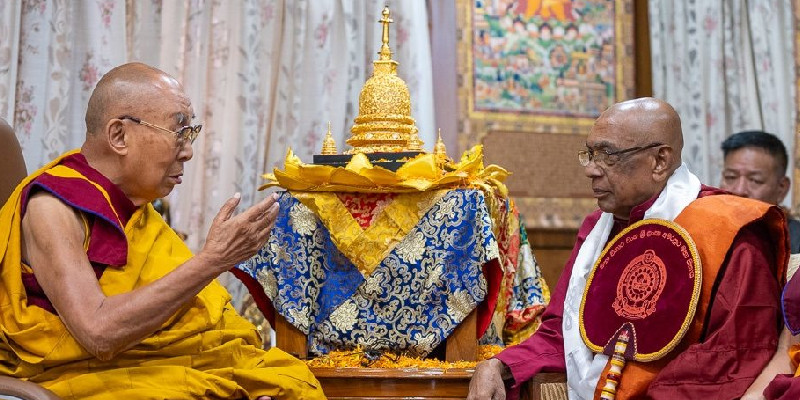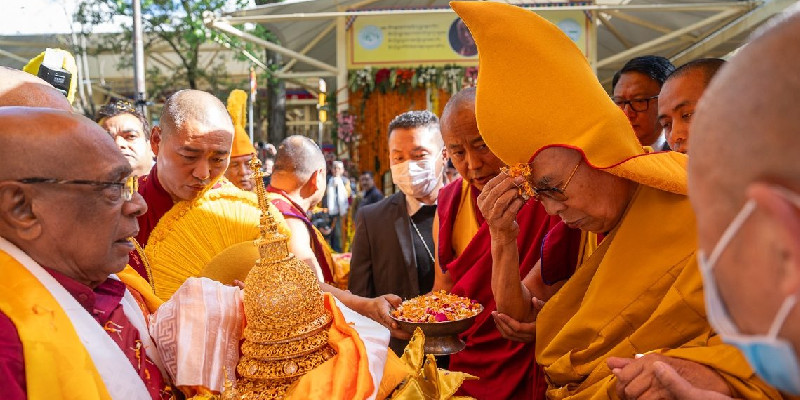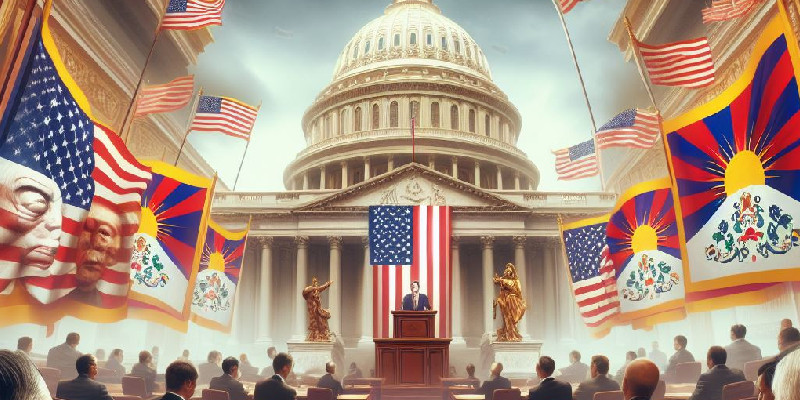The Human Rights Watch China director has published an opinion piece in their official website explaining China’s latest campaign. The latest campaign aims to demand political loyalty through gentle terms such as the one shown in the picture above, China’s pink hearts to conceal its brutal human rights suppression in Tibet and other regions under China.
“Tibet, a region known for systemic, state-sponsored human rights violations, is now awash with posters celebrating the “Four Emphases and Four Loves.” The campaign requires people to “Love the core by emphasizing the Party’s kindness/Love the motherland by emphasizing unity/Love your home by emphasizing what you can contribute/Love your life by emphasizing knowledge.” writes the HRW China director, Sophie Richardson on Tuesday.
“Translation: don’t criticize policies or officials and do show gratitude and loyalty to “the core” – the CCP and its leader Xi Jinping. The only way to “love the motherland” is to oppose anything that threatens “unity,” which certainly includes substantive criticism of the Party or the state or any discussion of independence or increased autonomy. And to be a “good citizen” is to focus one’s efforts on what you can “contribute” – but implicitly it’s up to the Party to decide what can or cannot be contributed.” she added in the article explaining China’s pink hearts campaign.

It is evident that through this campaign, China is indoctrinating the Tibetans right from their primary school. The children are taught to speak their hearts to Grandpa which refers to the president Xi through small notes while the Tibetan’s hearts and minds have been tragically suppressed by the communist regime since many decades now.
“In recent years authorities have reshaped the region’s economy in a manner that suits the central government and effectively excludes Tibetans from decision-making – and in the case of some nomadic communities leaves them demonstrably worse off. ” she added.
While China continuously remain suspicious of loyalty from the Tibetan people, which in turn has led to radically expanding their security and surveillance, such a campaign is unlikely to generate a kind of loyalty and respect they would want from the Tibetans. Sophie Richardson says that if China starts to respect the Tibetan’s human rights then only they could expect something in their way.







Leave a Reply